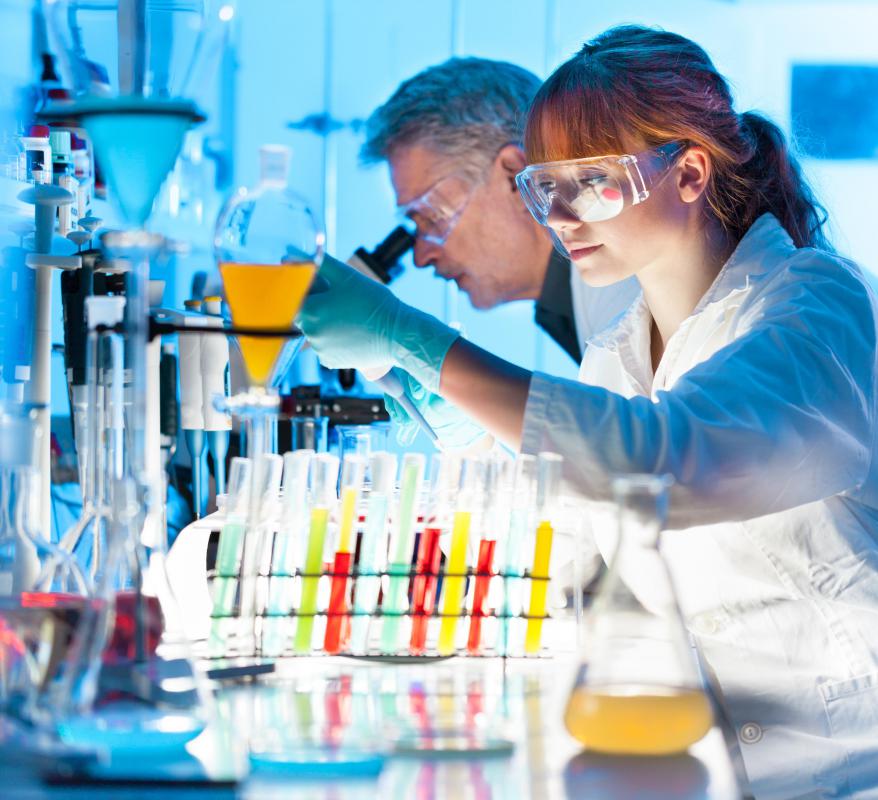At WiseGEEK, we're committed to delivering accurate, trustworthy information. Our expert-authored content is rigorously fact-checked and sourced from credible authorities. Discover how we uphold the highest standards in providing you with reliable knowledge.
How do I Become a Diagnostic Molecular Scientist?
There are three items required to become a diagnostic molecular scientist: post-secondary training, related work experience, and laboratory skills. A diagnostic molecular scientist is responsible for completing complex analyses. They are required to use a combination of manual techniques and specialized equipment to identify and diagnose changes at the molecular level. The vast majority of their time is focused on genetic testing, looking for clues behind disease development, resistance, and treatment.
People who want to become a diagnostic molecular scientist are typically detail-oriented, enjoy working independently, have a high degree of mental focus, and are very precise. The volume of knowledge necessary to be successful in this career is quite significant and requires a high level of dedication and study. The most appealing part of being this type of scientist is the opportunity to look at the root cause for diseases and potentially identify how the disease develops. The possible method for eradicating any disease is based on the information at the molecular level.

The first requirement to become a diagnostic molecular scientist is to complete a post-secondary education program. This is typically a university degree in biochemistry or chemistry, which is available through the Faculty of Arts & Sciences at a wide range of universities. Career advancement in this field can be achieved through either further education or a solid work experience history. The vast majority of scientists have a master's or doctoral degree in molecular chemistry.

Related work experience includes experience gained through a job placement program or internship during your studies. It is extremely rare for anyone without a formal post-secondary level training in molecular chemistry to obtain a position in this industry. Related jobs include research assistant, biochemical laboratory assistant, or chemical analyst.
Laboratory skills are critical for anyone who wants to become a diagnostic molecular scientist. The vast majority of the day is spent in a laboratory, testing, documenting the properties, identifying the structures at the molecular level, and conducting experiments. These skills are taught during post-secondary training at the graduate level. Accuracy, precision, and focus are all essential in this career.
Career advancement opportunities for a diagnostic molecular scientist are based on the skill set and level of knowledge. Promotions typically require additional education, which is usually within a specific field of study in molecular chemistry. Research and teaching positions are also tied to academic credentials, and candidates who are interested in this type of career should be actively pursuing this level of education.
AS FEATURED ON:
AS FEATURED ON:












Discuss this Article
Post your comments